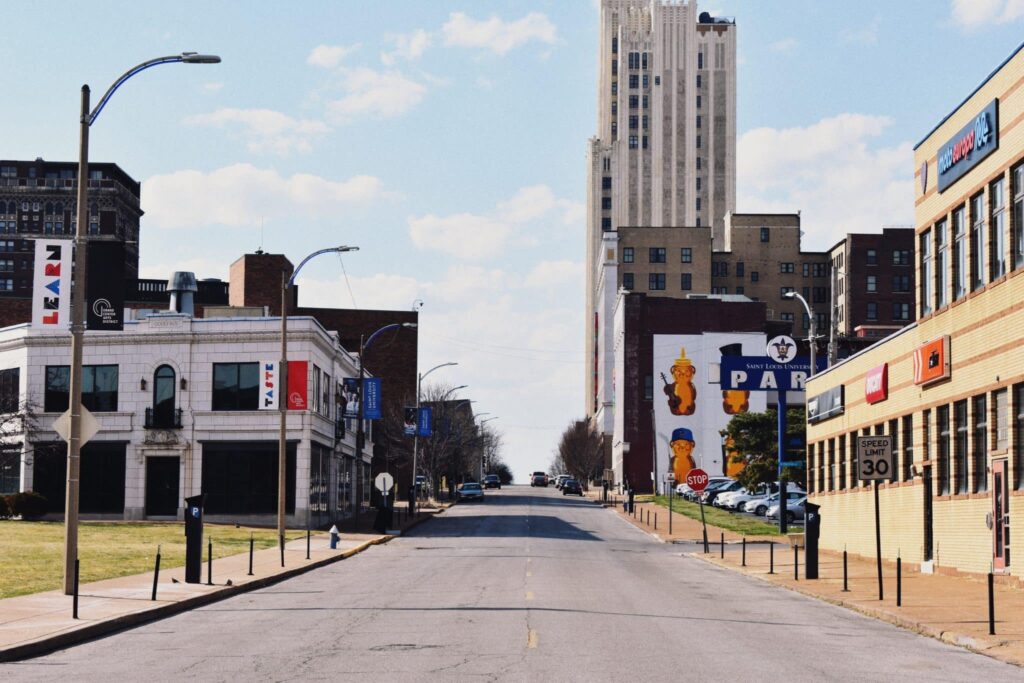Drug use in the United States has reached shocking lengths. Believe it or not, more than 59.3 million Americans ages 12 and up have used illicit drugs in the last year.
Fortunately, there is help available to those who need it, no matter your age or how long you’ve been using drugs. Let’s talk about what to expect in Missouri drug rehab.
Missouri Statistics
Drug overdoses are the number one leading cause of death in the state of Missouri. More than 70% of these deaths are related to opioids including heroin, fentanyl, and prescription pain medications.
Unfortunately, deaths continue to rise each year. That same study from the Missouri Health and Senior Services shows a rise from 1,364 deaths in 2016 to 2,163 in 2021.
Moreover, the St. Louis and Kansas City metro areas have been hit the hardest by these trends. The St. Louis area saw a death rate of 22.6 deaths per 100,000 people in 2022, with Kansas City also at a record high of 14.9.
As a result, Missouri drug users need to find treatment as soon as possible. Even waiting a week can be a matter of life and death, especially with the rise of synthetic opioids like fentanyl.
One of the greatest barriers for people who need treatment is a lack of understanding of what it entails. Let’s try to clear that up for you!
Understanding the Stages of Recovery
Before we discuss your stay in rehab specifically, let’s understand its role in your recovery journey. There are five stages of recovery, each with different challenges and timelines.
First, there is the pre-contemplation stage. This is when people are still actively abusing drugs and aren’t ready to stop just yet.
Second is the contemplation stage. This is when people with substance use disorder begin to realize the problems at hand and contemplate quitting, and it can last for anywhere from hours to months.
Next, you have the preparation stage. This can also last anywhere from hours to months, as you prepare for a serious recovery.
From there, you have action. Action is when someone finally decides to get treatment for their addiction recovery. In most cases, this is in the form of an inpatient or outpatient rehab program.
Finally, you have maintenance. Maintenance is the longest, and arguably hardest, stage of recovery. It lasts a full lifetime and comes with the most potential challenges.
Rehab seeks to address the latter two. The “action” stage comes with serious challenges, including medical challenges. This requires the most direct supervision, as it is the most intense part of recovery.
However, rehab plays an arguably more important role, and that’s to prepare you for the maintenance stage. Rehab seeks to provide you with the tools necessary for a sober life on your own.
What to Expect in Missouri Drug Rehab
Every program has some slight variations, including different recreational facilities, schedules, and staff backgrounds. Still, here’s what you should expect in a rehab program.
Intake
Intake is when you fill out admissions paperwork and assessments. Program staff will ask you questions about your background, possible mental illnesses, how long you’ve been using drugs, and some more questions that are relevant to your treatment.
It’s important to answer these honestly, as they will affect your treatment and they are fully confidential. You may need a specialized type of treatment, like dual diagnosis treatment. If you are not honest with the staff, then you may not receive the treatment you need.
Detox Services
Believe it or not, medical oversight during detox can be a matter of life and death. Complications during the first two weeks of recovery can have fatal consequences. Depending on the program and your needs, this could include medication-assisted detox, direct supervision, and more.
Consequently, this is one of the key reasons why it isn’t best to “go it alone”. Having professional help can make a world of difference in your health and safety.
Sobriety Education
It’s fair to think of rehab as a 30-day or 60-day educational program. You’re learning how to live a sober life.
Therefore, a lot of the program is dedicated to building that foundation. This is done with support groups, open discussions, therapy, and more.
If you have specific needs, like a coinciding mental illness, then you’ll also have therapy services. This can include your family or another specific type of therapy based on your needs.
You’ll also have the time and space needed to focus on hobbies and build better habits, as this is an important aspect of sobriety. Who says you can’t have a little fun while working toward your goals?
Still, there’s no reason to think that this is a “cure”. You don’t walk out of rehab and never have a craving or a thought about using drugs again. That’s why ongoing treatment is necessary.
Aftercare
It’s difficult, if not impossible, to learn all of the tools that you need to carry on for a lifetime of sobriety and prosperity. How much do you remember from high school math class? For that reason, we always recommend having some type of ongoing and regular support like therapy or support groups!
Don’t Wait to Get Help
Now that you know what to expect during Missouri drug rehab, you hopefully know that it isn’t anything to fear. However, the alternative surely is. Again, even a few extra days without treatment puts you or your loved one at unnecessary risk of overdose and death.
Fortunately, there’s treatment available, so get help today and keep reading our blog for our latest recovery tips!

